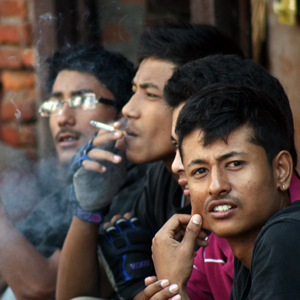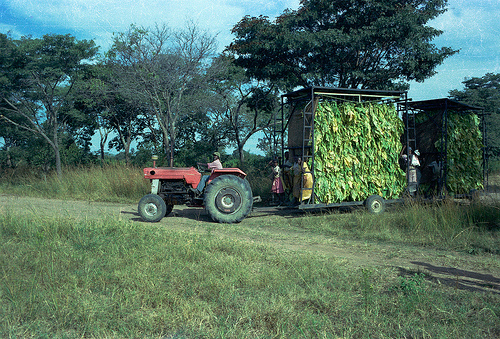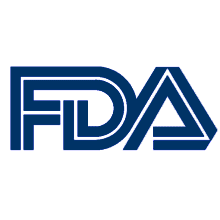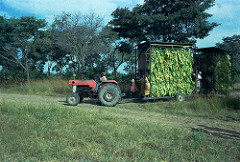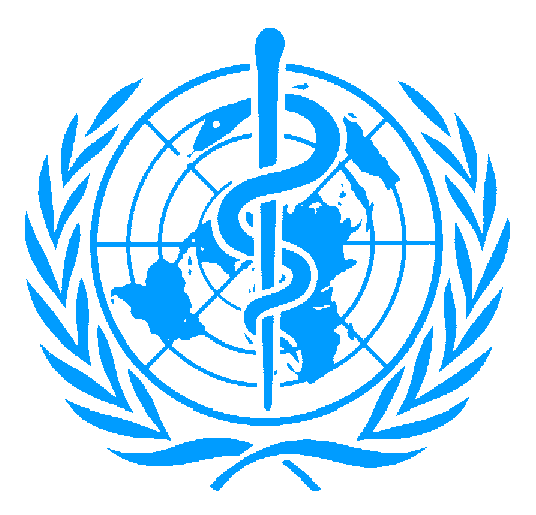Kathmandu’s Metropolitan authorities are implementing an 18-month ‘Healthy City Program’ aimed at cracking down on the use of tobacco in public places, according to a story in The Kathmandu Post.
Unveiling the plan on Friday, Mayor Bidhya Sundhar Shakya said there would be no compromises in implementing the program.
“In a bid to control its [tobacco’s] massive use, the government has made it expensive,” said Shakya. “The government makes a good income through it. But public are paying higher amount for their treatment.”
He said the campaign would make clear that smoking and consuming tobacco in public places was punishable.
The existing Tobacco Product (Control and Regulatory) Act-2011 bans smoking in public places such as government and company offices, parks, libraries, airports, public vehicles, childcare centers, cinema halls, hotels, restaurants, department stores, young people’s hostels, industrial and religious sites.
However, the Act has been allowed to become generally ineffective.
Although in February 2016 the city authorities started a crackdown that resulted in the booking of nearly 1,000 people, the drive quickly ran out of puff.
The city authorities say, however, that this time the program will be more effective.
The city’s Public Health Department chief, Hari Kumar Shrestha, said that to control the use of tobacco, a committee of 15-16 people would be formed in all wards to undertake a door-to-door awareness program.
The World Health Organization’s Tobacco Free Initiative has provided Rs10 million to conduct the Healthy City Program in Kathmandu.
If it enforces the ban, Kathmandu will become the 50th city to implement the program.
Category: Regulation

Nepal to enforce ban

Smoking deadly but lawful
The Netherlands’ Public Prosecutor has rejected calls for an investigation into allegations of murder or manslaughter against four multinational tobacco companies, according to a number of media reports.
An Associated Press story described the decision as a blow to what Dutch anti-smoking organizations had hoped would be a new legal front in their battle against the tobacco industry.
Benedicte Ficq, the lawyer who filed the criminal complaint against the tobacco companies, said she would petition an appeals court to order prosecutors to investigate.
And Anne Marie van Veen, a lung cancer patient who is one of the complainants was quoted as saying, “We won’t give up the fight”.
Ficq filed what she called a world’s-first criminal complaint in 2016 seeking a prosecution on behalf of Van Veen, another ex-smoker and a youth smoking prevention organization. Hospitals, doctors and other groups later joined the call.
Ficq had called for the prosecution of Philip Morris, British American Tobacco, Japan Tobacco International and Imperial Tobacco Benelux.
The complaint alleged that the tobacco companies were liable because of ‘the large-scale, decades-long and ongoing production and sale of addictive tobacco products in the Netherlands’. It alleged also that tobacco companies had acted in such a way as to render misleading the results of laboratory tests aimed at determining tar, nicotine and carbon monoxide deliveries.
But the Dutch Public Prosecution Service (DPPS) said in a written statement that it saw no prospect within current laws of a conviction.
‘Smoking is deadly and the design of cigarettes does add to this but according to the DPPS, the tobacco manufacturers have not acted in violation of either the law or the current regulatory framework,’ the DPPS said in an English-language statement.
Prosecutors added that tobacco companies could not be held criminally liable for the deaths or ill health of smokers because smokers knowingly exposed themselves to health risks.
‘Not everyone starts to smoke and there are people who do manage to stop,’ the DPPS said. ‘This element of freedom of choice in the chain of cause and effect means that the negative consequences of smoking cannot be attributed to the tobacco manufacturers under criminal law.’
Favoring combustibles
Western Australia’s state government is moving to introduce laws that could dump vaping into the same regulatory framework as the one that restricts smoking, according to a story by Cathy O’Leary for The West Australian.
Laws governing e-cigarettes in Australia are inconsistent. Western Australia (WA) effectively bans the sale of non-nicotine products by making it illegal to supply anything that resembles a tobacco product.
But WA is one of the few states not to ban people using them in non-smoking areas.
A parliamentary committee report chaired by Labor MLA Janine Freeman last year conceded the state’s laws were incomplete and loosely enforced.
“Anecdotal evidence suggests that many West Australians are unaware that nicotine e-cigarettes are illegal in Australia, and that selling a device that resembles a tobacco product is illegal in WA,” she wrote.
“For the time being at least, we have to work around a nonsensical regulation that allows the sale of nicotine for indisputably harmful tobacco products but not for a product which is widely regarded as less harmful.”
WA Health Minister Roger Cook, who supports a ban on e-cigarettes until their safety and effectiveness have been proved, said a review of WA’s tobacco laws would look at e-cigarettes.
“Towards the end of 2018, the Department of Health will conduct a further review of tobacco laws and I expect issues around all e-cigarettes to be front and centre,” he said.
Debating smoking bans
The Ministry of Health, Labor and Welfare is set to exclude from its third basic plan to tackle cancer, numerical targets for preventing passive smoking, according to a story in the Mainichi Daily News.
The targets were in the second plan that ran from fiscal 2012 to 2016, but will be left out of the third in line with a draft revision of the Health Promotion Act, which does not include a blanket ban on smoking in public spaces but states only that ‘unwanted passive smoking will be eliminated’. The draft revision is due to be submitted during this year’s regular Diet session.
As a result, the second-hand-smoke prevention measures in the third anti-cancer plan will take a step back from specific numbers in favor of more abstract targets.
The third plan was approved by the Cabinet in October after numerical targets concerning passive smoking were put on the back burner because the health ministry and the ruling Liberal Democratic Party could not agree on a figure.
The second plan had included aims such as reducing the ratio of people exposed to second-hand smoke in restaurants and bars to 15 percent by fiscal 2022.
And an expert panel that discussed the contents of the third plan urged the government to bring in a ‘zero passive smoking’ target.
However, new measures proposed by the health ministry in January list several exemptions such as allowing smoking in existing small-scale restaurants and bars if they display a relevant sign.
Nevertheless, the anti-cancer plan states that ‘anti-passive smoking measures will be implemented thoroughly ahead of the 2020 Tokyo Olympics and Paralympics, and a society with zero unwanted second-hand smoke exposure will be realized as early as possible during the third plan’.
Zimbabwe moving on
Zimbabwe’s central bank has said it plans to sell bonds to allow citizens living outside the country to invest in the country’s tobacco and gold, according to a story by Godfrey Marawanyika and Renee Bonorchis for Bloomberg News.
The Reserve Bank of Zimbabwe said it would provide more information on the diaspora bonds ‘in due course’.
At the same time, banking rules are being introduced with the intention of encouraging money flows and exports.
Under the rules, lenders must give exporters access to all of the foreign currency they received from selling goods, within 14 days of the funds being deposited.
And small, non-corporate exporters shipping more than $2,000 of goods no longer need fill in certain forms.
The new policies and plans come three months after the former president was replaced by the former deputy president, Emmerson Mnangagwa, who is said to be on a drive to revive the economy and attract investment.
The new administration will allow white farmers to apply for 99-year leases on land, up from five years previously.
And it has pledged to compensate them for improvements they made to land that was seized.
The Bloomberg story is at: https://www.bloomberg.com/news/articles/2018-02-19/zimbabwe-plans-gold-tobacco-diaspora-bonds-as-bank-rules-change.
Austria undecided
Following a public outcry, the scrapping of a ban on tobacco smoking in Austria’s bars and restaurants will have to be debated in parliament, according to a dw.com story.
Austria is one of a few Western countries that allow smoking in bars and restaurants, but that liberal attitude was due to be snuffed out in May with the enactment of a ban imposed by the previous coalition government.
The ban was scrapped by the new government at the behest of the leader of the far-right Freedom Party, Austria’s vice chancellor Heinz-Christian Strache, himself a smoker, who said it impinged on “freedom of choice”.
Chancellor Sebastian Kurz, a non-smoker, had supported the ban when his center-right People’s Party was a member in the previous ruling coalition. But he was forced to change stance, bowing to pressure from his junior coalition partner, which insisted that the ban be dropped as a precondition for being part of the government.
The Austrian Medical Association (ÖÄK) launched a petition on Thursday to thwart the government’s plan, and the petition proved so popular that registration of signatures on the Interior Ministry website had to be stopped for two hours on Friday due to the heavy load placed on the ministry’s online servers.
The story said that more than 100,000 people had signed the petition, a number high enough to mean that the matter would have to be debated in parliament.
“This is a big vote and it has to make politicians rethink the issue,” said the ÖÄK’s president, Thomas Szekeres. “We will keep collecting signatures and expressions of support so as to keep increasing the pressure.”
In theory, large restaurants in Austria are required to provide separate smoking and non-smoking areas, but the rules are not rigidly implemented. Smaller restaurants need not have a separate area if the owner agrees to allow smoking on the premises.
Canada in dialogue
The Global Forum on Nicotine (GFN) is due to stage a free-to-attend, tobacco-harm-reduction dialogue in Vancouver, Canada, in April.
The dialogue, Tobacco harm reduction: different strokes for different folks, or a consistent approach?, is to be held in partnership with the BC Centre for Disease Control and the Canadian Drug Policy Coalition.
It will be held from 09.00 to 16.30 on April 9, at the Morris J Wosk Centre for Dialogue in Vancouver.
‘The huge growth in the availability of safer nicotine products, with new technologies, such as vaping and heat not burn, as well as oral tobacco products, such as snus, has created greater opportunities for smokers to switch from a proven dangerous and unhealthy way to consume nicotine to much safer methods, according to a press note from the GFN, which has previously run series of dialogues in the UK and Ireland.
‘The emerging science surrounding both the technology and the products is positive and encouraging.
‘Vancouver has a proud tradition for supporting harm reduction for illicit drug use, including pioneering supervised consumption rooms for injecting drug use. The principles of harm reduction are well understood and have been enacted for many years with positive results.’
Participants will be addressed by international and local presenters, including:- Dr. Mark Tyndall, executive medical director, BC Centre for Disease Control;
- Professor Marjorie MacDonald, School of Nursing, University of Victoria;
- Professor Gerry Stimson, professor emeritus, Imperial College, London;
- Jacques Le Houezec, independent consultant in public health and tobacco dependence, France;
The presenters are due to examine:
- The history of harm reduction in Vancouver, the lessons learnt and the implications for this approach in relation to tobacco and smoking.
- Tobacco harm reduction as the ‘new kid on the block’ and what the emerging evidence is telling us.
- What does regulation look like and what are the elements that make for appropriate and effective regulation?
- The consumer experience – what products do people use and what are the results for them?
- What are the key issues for policy-makers and how can we ensure buy-in from all stakeholders?
Attendance at the dialogues is free, but participants are required to register at: https://gfn.net.co/dialogues/register.
More details about the dialogue are at: https://gfn.net.co/dialogues/vancouver-2018.
FDA seeking feedback
The US Food and Drug Administration says it is establishing a public docket to receive suggestions, recommendations and comments on topics or policy issues for consideration by the agency’s Nicotine Steering Committee.
In a press note issued through its Center for Tobacco Products, the agency said it would like to receive feedback from academic institutions, regulated industries, patient representatives, and other interested organizations and individuals.
It wants to use this feedback to help identify and address priorities related to the use of therapeutic nicotine for combustible tobacco product cessation.
‘The Nicotine Steering Committee was established in November 2017 and includes senior leaders from the Office of the Commissioner, Center for Drug Evaluation and Research, and Center for Tobacco Products,’ the note said.
‘The committee was formed to help develop and implement nicotine policy and regulation, especially on issues related to therapeutic nicotine for combustible tobacco product cessation.
Electronic or written comments should be submitted by April 16.
More information, including details about how to submit comments to the public docket, is at: https://www.federalregister.gov/documents/2018/02/20/2018-03341/nicotine-steering-committee-establishment-of-a-public-docket-request-for-comments.
Zimbabwe disease alert
Concerns have been raised in Zimbabwe about the resurgence of Potato Virus Y in tobacco, according to a story in The Herald.
PVY, a viral disease that is said to have been under control for some years, has apparently resurfaced, and tobacco growers are being blamed.
The government has urged tobacco growers to follow regulations on destroying stalks and crop residues to avoid the spread of pests and diseases.
The Minister of Lands, Agriculture and Rural Resettlement, retired Air Chief Marshal Perrance Shiri, made this call during a familiarization tour of the Kutsaga Research Station on Tuesday.
Shiri said some growers had been witnessed failing to destroy stalks and crop residues in a timely manner and others had been witnessed not destroying stalks completely. “Now, we end up with these challenges,” he said.
“We need to change the way we do things. We need to be responsible. We had grown a viable industry, which contributes immensely towards the economy of this country and in particular earning foreign currency. We seem to be gradually destroying the industry through the failure to comply with legislation of destroying stalks.
“I call upon farmers to be responsible. It is our responsibility, all of us, to look after the industry that has sustained us. It is there to sustain the economy of the country,” he said.
Zimbabwe’s Plant Pests and Diseases Act requires that tobacco farmers destroy tobacco stalks on or before May 15.
Tobacco Research Board general manager Dr. Dahlia Garwe also expressed concern over the disease, which she said had the potential significantly to affect tobacco production in Zimbabwe.
“We are extremely concerned about the incidence of the PVY,” Garwe said. “Our farmers have for a number of years ignored the legislation that was put in place to keep PVY on check. “Now we are starting to reap the ‘benefits’ of our sins. The fact that we have failed to observe the legislation has meant that we are now seeing an outbreak of a disease that has been under control.”
Garwe was quoted as saying that tobacco farmers were now growing crops of potato, tomato and pepper on the same land on which they grew tobacco. “The crops have the same pests and diseases, so if a tomato crop has been affected by PVY, that disease will also move into tobacco,” she added.
Increasing tobacco control
Sierra Leone is set to accelerate its tobacco control efforts with the help of the World Health Organization, according to a story in the Journal du Cameroun quoting a Ministry of Health and Sanitation (MoHS) official.
Dr. Alie Wurie, director of the MoHS’ Non-communicable Diseases department, said the ministry was poised to make tobacco control a national priority through legislation and education.
Wurie’s announcement was made in the context of a new WHO initiative designed to help countries fast track the implementation of the its Framework Convention on Tobacco Control (FCTC).
Sierra Leone is among 15 low- and middle-income countries selected to benefit from the UK-funded FCTC 2030 project, which seeks to reduce tobacco consumption.
The MoHS estimates that there are 40,000 tobacco users in the country, and that smoking prevalence is on the rise, particularly among men and young people.
The Journal reported yesterday that technical experts from the FCTC 2020 project were in Freetown and that on Tuesday they held a national meeting with stakeholders on the FCTC 2030 project.
Andrew Black, development assistance team leader with the FCTC 2030 secretariat in Geneva, said tobacco not only stole lives; it exacerbated poverty, damaged the environment and created immense burdens on national health systems.

